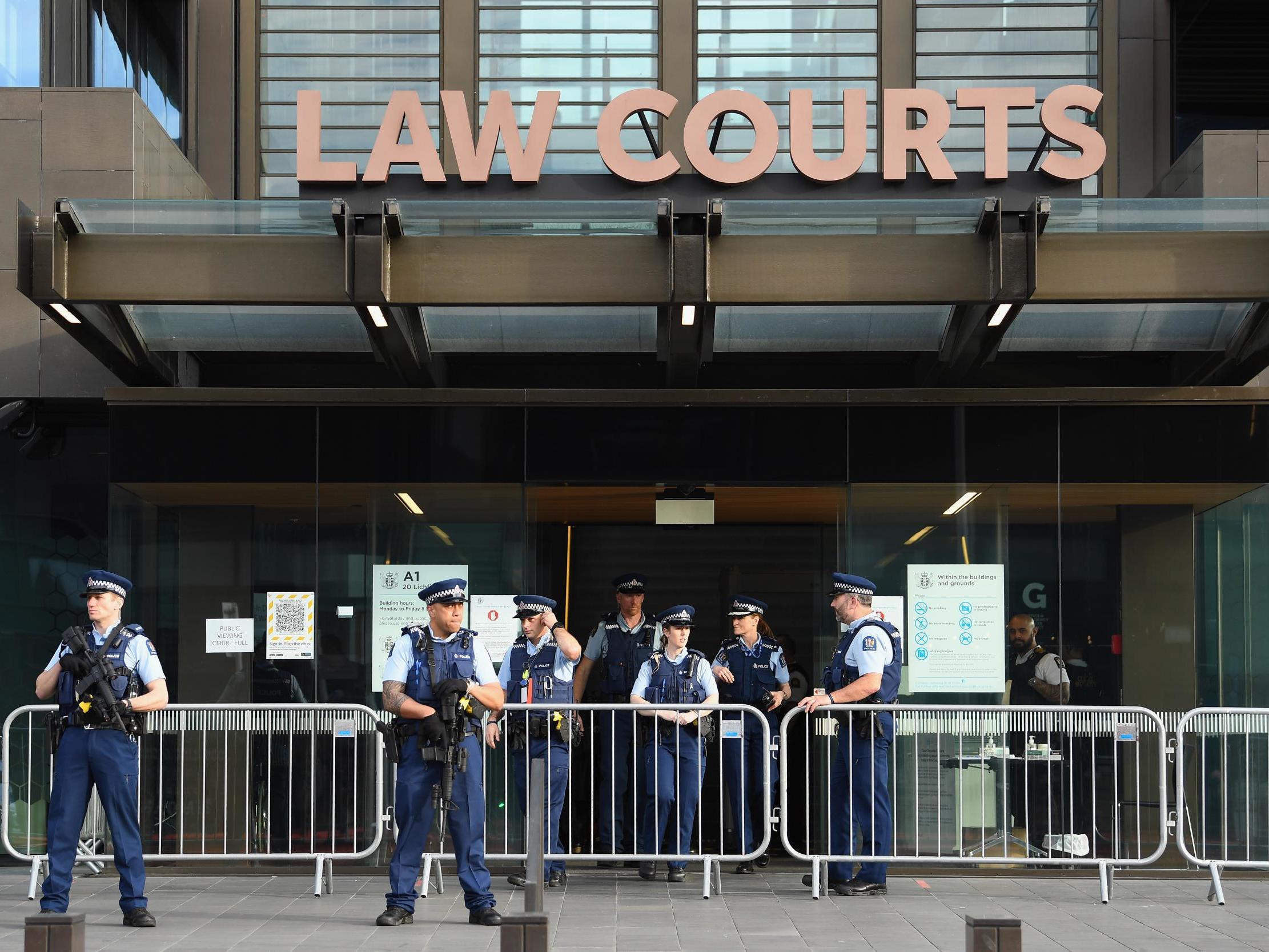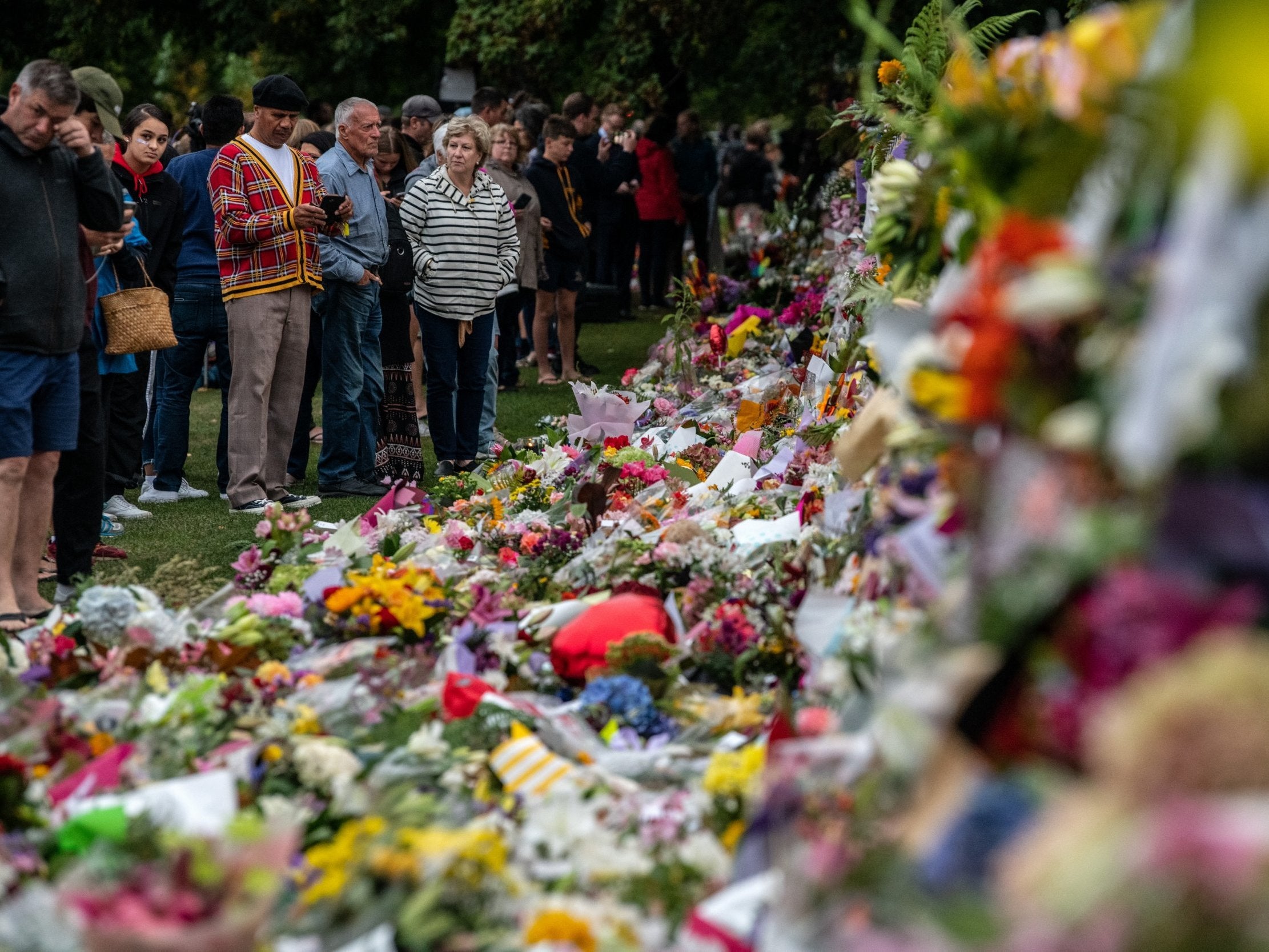Christchurch shooter spent years preparing for attack, sentencing hearing told
Australian Brenton Tarrant faces life prison term and is to be sentenced this week at Christchurch High Court

Your support helps us to tell the story
From reproductive rights to climate change to Big Tech, The Independent is on the ground when the story is developing. Whether it's investigating the financials of Elon Musk's pro-Trump PAC or producing our latest documentary, 'The A Word', which shines a light on the American women fighting for reproductive rights, we know how important it is to parse out the facts from the messaging.
At such a critical moment in US history, we need reporters on the ground. Your donation allows us to keep sending journalists to speak to both sides of the story.
The Independent is trusted by Americans across the entire political spectrum. And unlike many other quality news outlets, we choose not to lock Americans out of our reporting and analysis with paywalls. We believe quality journalism should be available to everyone, paid for by those who can afford it.
Your support makes all the difference.The Christchurch shooter who killed 51 people at two mosques in 2019 spent years meticulously planning his attacks to maximise casualties, a New Zealand court has heard.
Australian Brenton Tarrant has pleaded guilty to 51 murder charges, 40 charges of attempted murder and one charge of committing a terrorist act in relation to the massacre, which took place last year on 15 March.
The 29-year-old could become the first person in New Zealand's history to be handed a life prison sentence without the possibility of parole. His sentencing hearing began on Monday at Christchurch High Court and is expected to last four days.
Handcuffed and dressed in grey prison clothes, Mr Tarrant sat with hands clasped for most of Monday morning’s proceedings. He showed little emotion, and looked directly at those delivering victim impact statements.
Crown prosecutor Barnaby Hawes said the Australian “intended to instil fear into those he described as invaders, including the Muslim population or more generally non-European immigrants”.
Mr Tarrant first moved to New Zealand in 2017 with plans, he has said, to collect weapons and plot the attack.
He spent years purchasing high-powered firearms, researched mosque layouts by flying a drone over his primary target, and timed his attacks to maximise casualties, Mr Hawes said.
The shooter went to Christchurch about two months before the attack and flew a drone directly over the Al Noor mosque, where 42 of his victims were killed (two others later died in hospital), with a focus on its entry and exit points.
After fleeing Al Noor on the day of the attack, Mr Tarrant went on to kill seven more people at a second mosque before being detained on his way to a third.
At least 66 people plan to deliver victim’s statements during this week’s sentencing, either read aloud or submitted in writing.
Gamal Fouda, imam of Al Noor mosque, told Mr Tarrant that he was “misguided and misled” and that his hatred was unnecessary.
“I can say to the family of the terrorist that they have lost a son and we have lost many from our community too,” Mr Fouda said. “I respect them because they are suffering as we are.”
High Court judge Cameron Mander said that he had received more than 200 victim impact statements, along with submissions from various organisations.
Justice Mander has put in place a series of restrictions on media coverage that aim to keep provocative court moments out of the public sphere and to minimise the notoriety sought by Mr Tarrant, who recently fired his lawyers and decided to represent himself for the sentencing.

Journalists have been warned that there is a limit to what they can report on.
“The court may determine what information can be published about a hearing and when it can be published,” Justice Mander wrote last week.
A murder conviction carries a mandatory sentence of life in prison. The judge can impose a life term without parole, a sentence that has never been used in New Zealand.
The Christchurch attack was the worst mass shooting in the country’s history, and led to a tightening of national gun laws.
Justice Mander said that he would not sentence Mr Tarrant before Thursday morning after survivors and family members of victims had an opportunity to address the court.
Additional reporting by Reuters
Join our commenting forum
Join thought-provoking conversations, follow other Independent readers and see their replies
Comments